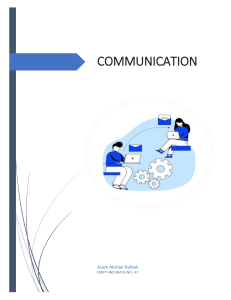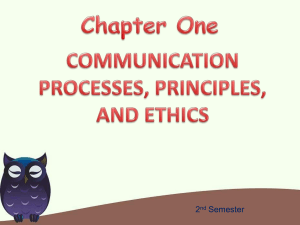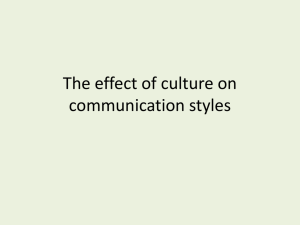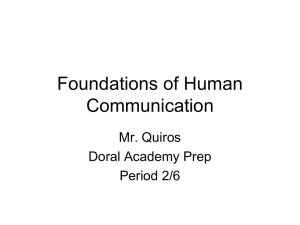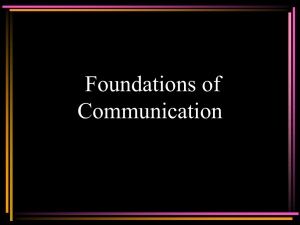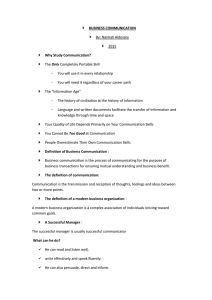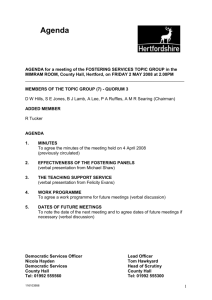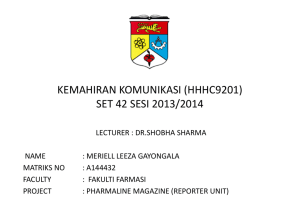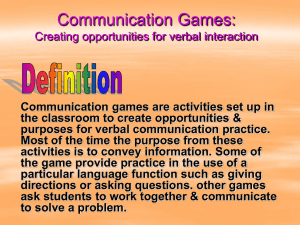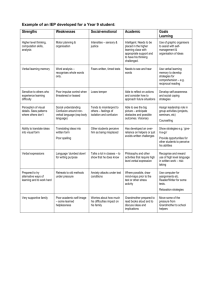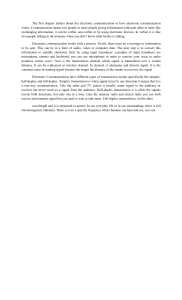PEI ACTIVITIES IN Khyber Pakhtunkhwa
advertisement
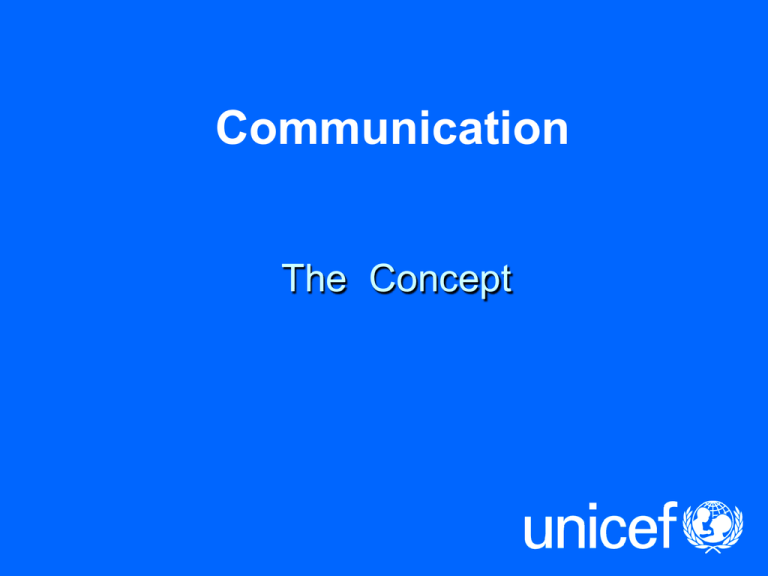
Communication The Concept What is Communication The word communication is derived from a latin word “Communicare” means common, to give a share, to reveal to have some thing in common. The process of exchange of ideas, feelings, facts or information between two persons or more than two persons The is the process of transmitting verbal and non verbal messages. Communication is effective when it achieves the desired response from the receiver. Communication Model SMCR Model Sender Channel Message Feed Back Receiver Types of Communication • Verbal Communication • Non Verbal Communication Means / Media / Channels of Communication Print Media • News papers / Magazines • Letters Memos • Billboards / Posters / flyer Electronic Media • Radio • TV • Internet • Telephone Methods • Interpersonal Communication ( IPC ) • Group Communication Perception • No person sees things exactly the same way as another. Each has a unique set of experiences , a unique perceptual filter, through which he or she compares and interprets messages., While communicating , receiver uses that filter to give meaning to or make sense out of the experience. We only see tip of an ice berg Behavior Filters, mental models Values, believes, emotions Submissions We Communicate better when we understand how people see How people see shape what they know What they know shape what they believe What they believe shape how they act Group Exercise Communication for Development Strategic Communication Advocacy Social Mobilization Behavior Change communication Behavior Change Communication An Interactive process with specific audiences / beneficiaries to develop tailored messages and approaches using a variety of communication channels for developing positive behaviors Providing information that people need in a wrapping that is acceptable to them Behavior • Collection of actions exhibited by human beings and influenced by: • Culture – Attitude – Emotion – Authority - Genetics. • Response ( Action or reaction ) of an individual / group to a stimuli • Immunization behaviors are ingrained in: • Tradition • Culture Target audiences • Primary • Directly involved with the woman/her child: • Father • Mother • Grand father • Grand mother • Mother-in-law • Husband • Secondary • Not directly involved but play important role in community/society • Health care providers, LHWs • TBAs • Religious leaders • Community leaders Thank You
